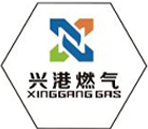
Nov . 15, 2024 21:29
Back to list
natural gas filtration
Natural Gas Filtration Ensuring Purity and Safety in Energy Supply
Natural gas has become an essential source of energy across the globe, powering homes, industries, and vehicles. As its usage increases, so does the necessity for effective natural gas filtration systems. These systems play a crucial role in ensuring the purity and safety of the gas that we depend on daily.
Natural gas, primarily composed of methane (CH4), often contains various impurities that can impair its quality and efficiency. Common contaminants include water vapor, hydrogen sulfide (H2S), carbon dioxide (CO2), and solid particles such as dust or dirt. If left unfiltered, these impurities can lead to corrosion, reduce energy efficiency, and cause malfunction in infrastructure and appliances designed to utilize natural gas.
The filtration process typically begins at the extraction site, where raw natural gas is often found mixed with various unwanted substances. Initial filtration systems involve separating large particulates using mesh filters or cyclonic separators. However, as the gas moves through pipelines, further purification becomes critical to eliminate smaller contaminants. This is where more advanced filtration technologies come into play.
natural gas filtration

One widely adopted method is the use of molecular sieves. These materials are designed to selectively adsorb specific molecules based on size and shape, making them ideal for removing water vapor and other small gas molecules. Another important technology is activated carbon filters, which are effective in removing gases like hydrogen sulfide and carbon dioxide through adsorption processes. Both methods ensure that the natural gas supplied to end-users is not only clean but also compliant with regulatory standards.
Filtration is not just about removing impurities; it also involves ongoing monitoring and maintenance to ensure optimal performance. Regular inspection of filtration systems is essential, as build-up of contaminants can lead to reduced efficiency or even blockage of pipelines. Advanced monitoring systems, including pressure and flow sensors, allow for real-time evaluation of the filtration process, ensuring that any issues can be addressed promptly.
Furthermore, the increasing demand for natural gas has led to innovations in filtration technology. For instance, the integration of nanomaterials in filtration systems has shown promise in enhancing efficiency and capacity. Additionally, research into membrane technology is ongoing, which could revolutionize how we filter natural gas by providing more efficient separation methods.
In conclusion, natural gas filtration is a vital step in the delivery of clean and safe energy to consumers. Through advanced filtration techniques and regular maintenance, it is possible to ensure that the natural gas we use in our day-to-day lives is free from harmful impurities. As the energy landscape continues to evolve, focusing on effective filtration will be key in advancing the sustainability and efficiency of natural gas as a primary energy source.
Next:
Latest news
-
Safety Valve Spring-Loaded Design Overpressure ProtectionNewsJul.25,2025
-
Precision Voltage Regulator AC5 Accuracy Grade PerformanceNewsJul.25,2025
-
Natural Gas Pressure Regulating Skid Industrial Pipeline ApplicationsNewsJul.25,2025
-
Natural Gas Filter Stainless Steel Mesh Element DesignNewsJul.25,2025
-
Gas Pressure Regulator Valve Direct-Acting Spring-Loaded DesignNewsJul.25,2025
-
Decompression Equipment Multi-Stage Heat Exchange System DesignNewsJul.25,2025

